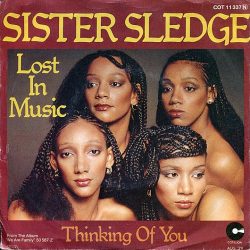I shop therefore I am
The French philosopher René Decartes would probably not be very pleased with how we have tweaked one of his most important contributions to modern thinking. However, it is a more accurate representation of how society defines itself today. We are what we buy. We are the clothes we have on our wardrobes, the cars on our garages, and the items we add to cart. Only after that are we citizens.
In a system driven by capitalist values, consumption is an intrinsic part of one’s identity. But spending money should not be our only contribution to the advancement of civilization. ‘Vote with your wallet’, they say. When sustainability became part of common vocabulary, people started questioning where they were buying instead of why they were buying. The solution seemed clear: you just have to shift your consumption habits to companies that share your values. Patagonias of the world, unite! We will save the environment by purchasing your low-impact jackets.
Well, the reality is not that simple. It is undoubtedly important to support business models that are built on sustainable principles. Nonetheless, the idea of voting with your wallet is deeply flawed, perhaps because it is, in itself, a construct of capitalism.
Although individual actions do matter, we are still one in eight billion. Actually, no: we are a few dollars to companies that make trillions of them. They will not notice that you chose to buy from a small business
In theory, supply is driven by demand, so the more people boycott unsustainable businesses, the faster their practices change, right?
Wrong. Unfortunately, we have too many examples that prove the contrary. Faced with external pressure from stakeholders, companies are pushed to change their communication. Suddenly, everything is labelled as green and organic. It is only when this strategy is scrutinized that an actual shift in behaviour takes place, usually in the form of a carbon-neutrality goal to be achieved by 2050.
But there is an even bigger problem with the ‘vote with your wallet’ approach: it perpetuates inequalities.
Typically, sustainable companies present higher price points, which lower income consumers may not be able to afford. Do we really want our value as citizens to be associated with how much money we can spend? Some may argue that this is already the case; nonetheless, I choose to believe that true power resides in citizenship.
As citizens, we have rights and duties. We also have constitutions that give us the tools we need to be heard
There is a reason why they call it voting with your wallet. At first glance, it simply means ‘making a choice.’ But this verb carries a political meaning that should not be dismissed. Voting is one of the most important actions that we can take as citizens. It is about having a say in the system that governs our entire lives. In the fight against climate, we have long surpassed the stage of meaningless actions. We need urgent systematic changes, and that can only be achieved through voting.
Another way to be heard is by (literally) using our voices. Engaging in protests, signing petitions, and asking questions are valuable actions that should not go unnoticed. Instead of anonymously spending our money somewhere else, why not ask a company about its ecological practices? Send an email or comment on their social media, and I guarantee you that there will be a reply. You know why? Because you have more power as a citizen than you will ever have as a consumer. Your money cannot vote. Your money cannot protest. Your money cannot speak out. Only you can.
Featured image: Mean Girls (2004)

































